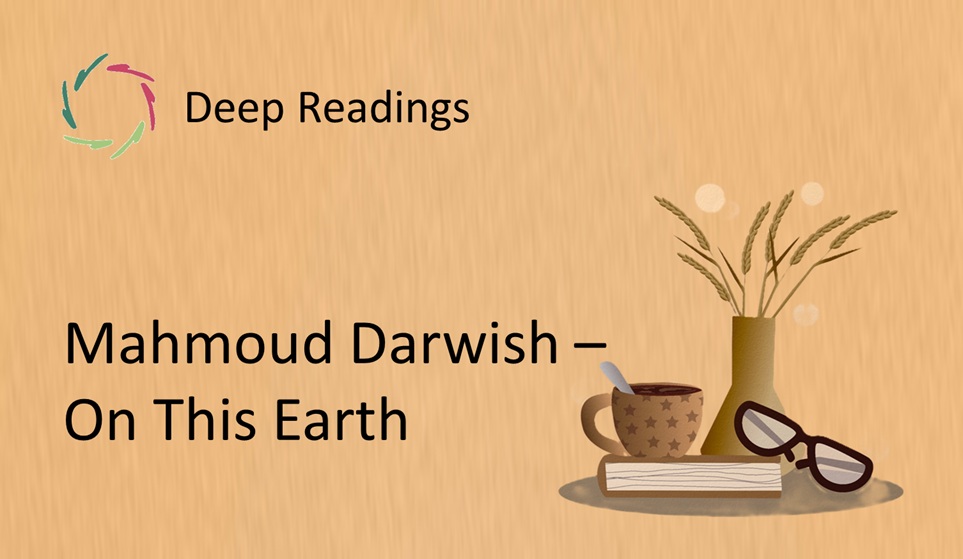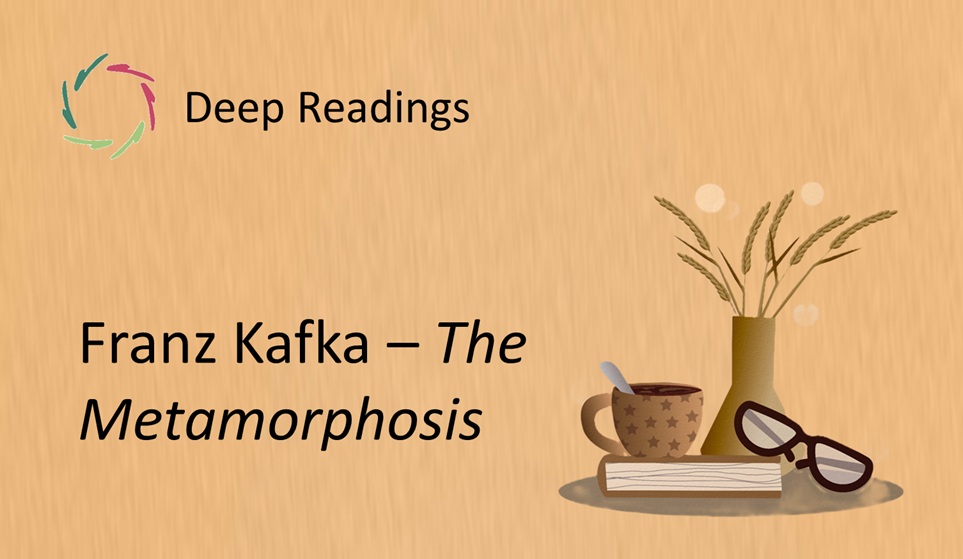Deep Readings: Mahmoud Darwish – On This Earth

The Fragment
Original (Arabic):
على هذه الأرض ما يستحق الحياة
English rendering (by Lisa):
On this earth, there is what deserves life.
(Short excerpt due to copyright)
[Read more → study/review sites]
Contextual Glimpse
Mahmoud Darwish (1941–2008) is the national poet of Palestine and one of the world’s great modern voices. His poetry weaves love, loss, exile, and belonging into language of luminous simplicity. Written in 1986, “On This Earth” declares, in a time of despair, that beauty persists: small, ordinary, profound reasons to live. Darwish lists them — a mother’s embrace, the scent of bread, the call of doves — circling back always to the refrain, “On this earth, there is what deserves life.”
Resonance
The fragment is both statement and incantation. It resists despair not with ideology but with attention to what remains precious. By repeating the line, Darwish transforms it into a heartbeat, steady against violence and exile. The “earth” is not abstract: it is touch, taste, sound, memory.
This resonates because each of us knows times when despair threatens to eclipse everything. Darwish reminds us: life is not made of grand victories but of fragile, irreplaceable presences.
Why this may also be about you
The poem is not only about Palestine. Each of us has known moments where hope seemed absent, yet something small — a gesture, a song, a scent — rekindled the sense that life is still worth living. The line calls you to notice what, here and now, makes your earth worth inhabiting.
It asks: what deserves life in your world? The answer need not be large; it may be a single flower, a word, a face.
Lisa’s inspired, original idea about this fragment
Perhaps Darwish’s line is not only descriptive but creative. By naming what deserves life, he brings it into being more fully. The refrain becomes an act of making the world habitable.
In this sense, poetry itself is what deserves life. Each repetition of the line is both witness and seed — a planting of hope into the soil of despair. The earth that deserves life is not somewhere else; it is this very moment, made radiant by attention.
Echoes
“On This Earth” has become one of Darwish’s most quoted poems, recited at cultural festivals, protests, and weddings alike. Its refrain turned into a motto, painted on walls, sung in songs, inscribed in hearts. It transcends borders: a Palestinian cry, yet also a universal affirmation.
The echo shows how poetry, once released, belongs to everyone. Each time someone repeats the line — in Arabic, in English, in any language — they renew its force. It continues to live because people keep breathing with it, finding in it their own reasons to love the earth.
Inner Invitation
Close your eyes and whisper the line to yourself: “On this earth, there is what deserves life.” Let it echo softly. Now ask: what, in my world, deserves life? Notice the images that arise — faces, scents, places, memories. Hold them for a moment with gratitude, as Darwish did, as if naming them helps keep them alive.
Closing Note
Darwish’s fragment is both affirmation and resistance: a reminder that even in exile and despair, the earth holds reasons for us to live — fragile, ordinary, and immense.
Full English Rendering of “On This Earth”
(English rendering by Lisa)
On this earth, there is what deserves life:
the hesitation of April,
the scent of bread at dawn,
a woman’s touch to the child she carries,
the song of doves at daybreak,
and the poetry of Aeschylus.
On this earth, there is what deserves life:
the end of September,
a woman leaving her lovers in a rush of cloud,
the memory of the beginning of love,
grass on a stone,
mothers standing on a string of flute,
and the invaders’ fear of memories.
On this earth, there is what deserves life:
on this earth is the lady of earth,
the mother of beginnings,
the mother of ends.
She was called Palestine.
Her name was Palestine.
She came to be described.
So I was named her lover.
This is my brief eternity,
my journey of eternity.
It is because on this earth
there is what deserves life.


